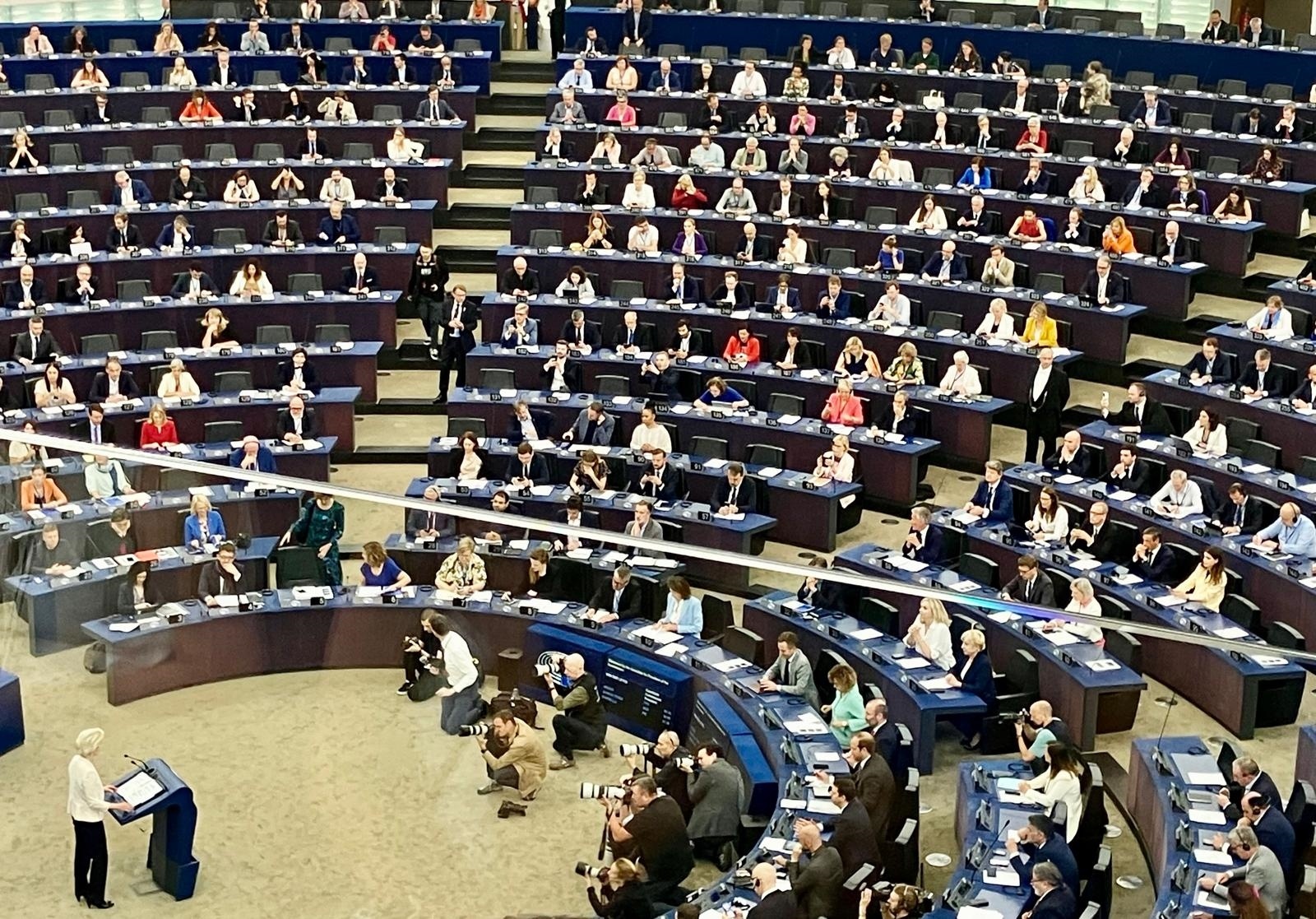The EU Digital Single Market programme reaches the endgame
by Shomik Panda on 31 Oct 2018
The European Commission's latest Work Programme lays out its priorities for 2019. It includes a number of regulatory issues for the tech sector to be finalised before May 2019’s European elections; both Digital Single Market (DSM) initiatives and several that fall outside of the DSM umbrella.
The Work Programme contains just fifteen new initiatives, all of which are non-legislative; and ten new legislative evaluations, to review existing legislation and ensure that they are still fit for purpose. It also identifies a large number of "priority pending proposals" for adoption by the European Parliament and Council of the EU before the European elections next May; and suggests withdrawing or repealing a small number of pending proposals or existing laws.
This article will take a deeper look at the 2019 Work Programme and contend that the European Commission will have its work cut out to realise some of the broader aims of the Digital Single Market, which were not only to create a single EU market where the free movement of goods, persons, services, capital and data is guaranteed, but also to boost jobs, growth, competition, investment and innovation.
There are three key reasons for this:
- Time is running out to achieve political agreement on several contentious digital files before the EU Parliamentary elections in May 2019. Some files may not be agreed.
- The European Commission has introduced several priority legislative initiatives outside of the DSM which introduce new burdens on digital companies and will threaten their growth.
- The European Parliament is pushing some DSM files away from their original purpose.
There is a risk that proposed new legislation sitting outside of the DSM programme, combined with European Parliament intervention, will tip the balance of EU legislative activity towards consumer protection and away from boosting the competitiveness of the EU digital sector – which the European Commission’s original DSM programme was carefully designed to avoid.
No new legislation for tech, but a number of non-legislative initiatives
The Work Programme comes just six months before the end of this European term, therefore it is little surprise that it is lighter on new initiatives then previous years, and that the main focus is on agreeing legislative priorities that have already been tabled. Regardless of this, given the recent flurry of policy proposals targeting large tech multinationals at EU and EU Member State level, ‘big tech’ should still breathe a small sigh of relief that no new EU legislative proposals targeting the sector have been tabled.
Instead the European Commission has introduced the following new non-legislative digital initiatives:
- A Coordinated Plan on the development of Artificial Intelligence in Europe: due to be released this quarter, this plan will follow up initial steps that were set out by the Commission earlier this year.
- A Joint Action Plan to tackle the spread of online disinformation: the Commission and the High Representative will present this joint initiative this quarter, which is intended to make an impact ahead of next year’s elections to the European Parliament.
- A Recommendation to establish a format for the exchange of European Electronic Health Records: In Q1 2019, this Commission Recommendation will facilitate the exchange of patient data across borders and help to promote medical progress through the digitalisation of health services.
Proposed reforms to the EU's policy making process for tax could be significant
Perhaps more pertinently to large tech companies in this environment, the Commission has also proposed a non-legislative initiative to move to more efficient law-making in the field of taxation. In Q1 2019 the Commission will identify tax policy areas that are suitable for a move away from unanimous agreement on proposals towards qualified majority voting. This will effectively remove the veto on EU tax rules that is currently available to all EU Member States.
A number of ambitious EU tax policies have stalled over recent years due to opposition from certain Member States. The Barroso Commission’s plans for an EU Financial Transactions Tax were scuppered by the refusal of some Member States to participate, and more recently in this Commission a small group of governments, such as Ireland, continue to oppose plans for a “EU digital services tax” as well as plans to harmonise rates of corporation tax across the EU.
The Commission’s motivations to move away from unanimous agreement on tax issues are ambitious. Any such reform would significantly enhance the likelihood of the introduction of new harmonised tax rules that could hit many multinationals and especially the large players in the tech sector.
It should be noted that progress on this reform is by no means guaranteed. There is likely to be stiff opposition from EU Member States who view taxation as primarily a domestic competence. Such a far-reaching reform would also usually require a treaty change, which would need to be ratified by referenda in several EU Member States.
Agreeing the remaining Digital Single Market dossiers is a priority
Of the 30 legislative initiatives which the Commission put forward for the Digital Single Market at the start of this Commission, 18 have been adopted into law with the remaining initiatives still requiring a political agreement between the Council of the EU, Parliament and the Commission ahead of European Parliamentary elections in May.
No Digital Single Market initiatives have been withdrawn as part of this Work Programme and no existing pieces of digital legislation have been earmarked for revision or for repeal.
To give you an idea of the volume and breadth of the DSM files that still need to be negotiated and agreed before the European Parliament breaks for the European elections next year, they include legislation on: domain names; public sector information; fairness and transparency for business users of online intermediation services; e-privacy; cybersecurity; copyright; contracts for the supply of digital content; and contracts for the online and other distance sales of goods.
The e-privacy and copyright files have already proven to be contentious in the EU institutions and it may take time for agreement to be found. A vast number of amendments have also been tabled by MEPs to the draft Regulation on fairness and transparency for business users of online intermediation services, some of which threaten to take the proposal far away from the Commission’s original intentions. In such circumstances finding political agreement across all DSM files cannot be guaranteed.
Significant legislation beyond the Digital Single Market umbrella
Closer examination of the Commission Work Programme shows that there are a number of other legislative files outside of the DSM umbrella that could have a material impact on tech companies.
EU Taxation legislation is being finalised which would introduce an EU digital services tax; corporate taxation of companies with a significant digital presence; a Common Consolidated Corporate Tax Base; a Common Corporate Tax Base; and a proposal to harmonise and simplify VAT rules.
New legislation is also being finalised to better enforce and modernise EU consumer protection rules and introduce a new EU-wide system of collective redress.
Online platforms will have to introduce new internal checks and processes under proposals designed to combat terrorist content online and to produce and preserve e-evidence during criminal investigations.
These files, although outside of the DSM, all have the potential to significantly increase the burdens on digital companies operating in the EU.
Will the Commission achieve the Digital Single Market legacy it sought to create?
Taking into account this wide range of legislative and non-legislative activity within the Commission's Work Programme leads to the following conclusions:
- The EU institutions will be hard pressed to agree all of their remaining priority dossiers and to achieve the European Commission’s Digital Single Market vision by May 2019. A number of "priority pending" initiatives, not least those on copyright, e-privacy and taxation, are contentious and there remain deep divisions between the positions of the European Union institutions, making political agreement before the May 2019 Parliamentary European elections of this Commission difficult.
- The European Commission has prioritised a number of initiatives outside of the Digital Single Market programme, which may jeopardise the original goals of the package of measures. One of the stated objectives of the Digital Single Market programme was to boost jobs, growth, competition, investment and innovation in Europe. Proposed legislation outside of the DSM programme, such as on taxation and content monitoring, risks tipping the balance of the Commission’s work in the digital sector towards consumer protection goals, rather than maintaining a balance between consumer protections and policies that will boost the competitiveness of the EU digital sector.
- The European Parliament may jeopardise the original goals of the DSM further over the next six months. As MEPs debate and finalise their Reports on both DSM and non-DSM files, the direction of travel seems to be towards imposing further burdens for tech companies, rather than respecting the original aims of the Digital Single Market. Recent examples include amendments put forward by MEPs to the Platforms-to-Business legislation, which could saddle platforms with data access requirements for all of their business users; and revisions to consumer legislation which could make platforms liable for the accuracy of reviews on their sites.
It is looking increasingly unlikely therefore that a legislative programme which ultimately delivers on the original goals of the European Commission’s Digital Single Market project will be agreed during this European Parliamentary term.
Four years is a long time in both tech and politics, so it is unsurprising that in this period the political priorities of the institutions may have shifted away from their original intentions to a more interventionist regulatory approach. With little time left for this Commission, we will soon know whether the Digital Single Market that was initially envisaged for Europe will, in fact, turn out to look quite different.
Photo credit: Alexandros Michailidis / Shutterstock.com
Topics: European Politics, E-commerce, Digital Single Market, Shomik Panda, Tax

-cropped.jpg)





Comments